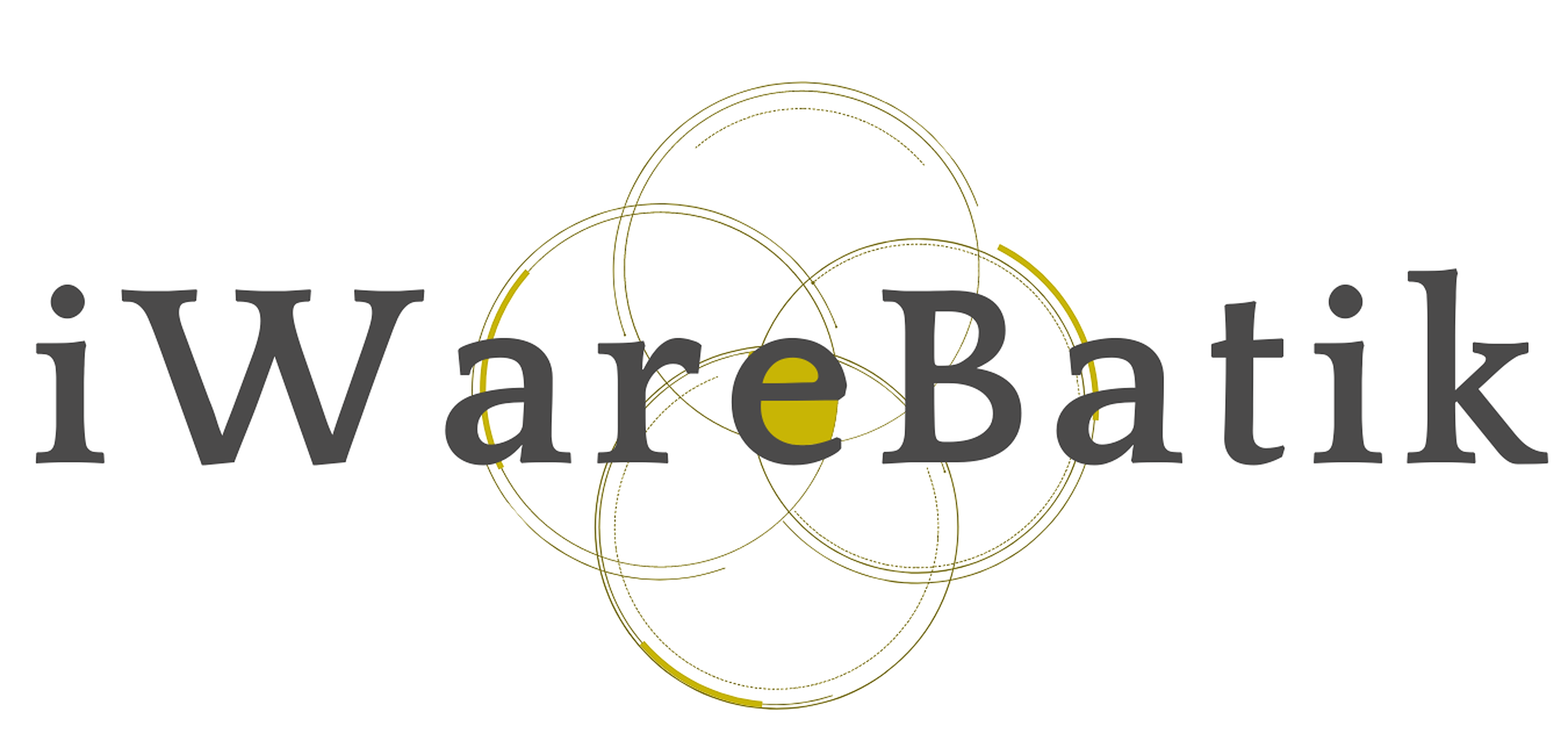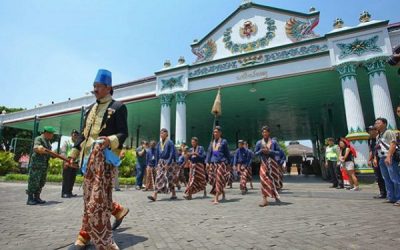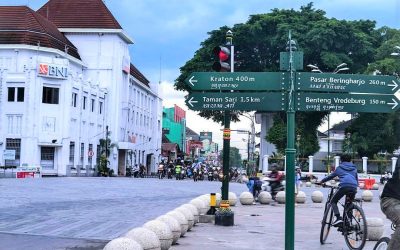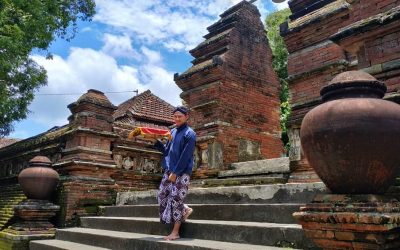Home / Batik Regions – Western Indonesia – Java Island – Yogyakarta / Prambanan Temple UNESCO World Heritage Site
Cultural Destination
Embrace the spirit of the place!
Prambanan Temple UNESCO World Heritage Site
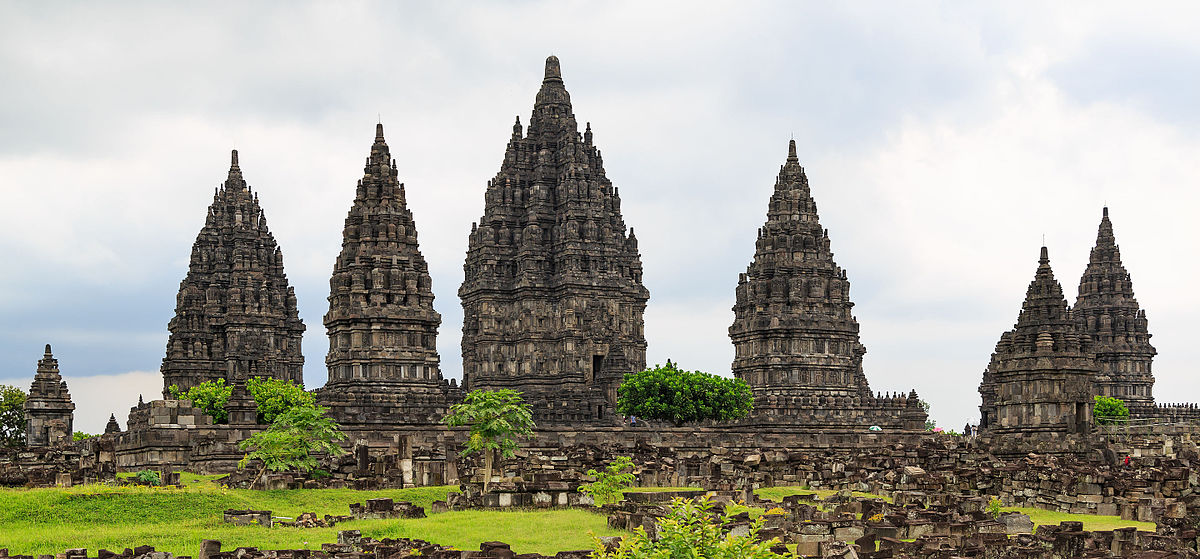
Prambanan Temple Compounds (photo: Uwe Aranas, Wikipedia)
The Prambanan Temple UNESCO World Heritage Site
It is one of the most important Hindu complex of temples built in 850 AD. It is UNESCO World Heritage site inscribed in 1991. Beside hundreds of shrines within the complex, the three biggest temples are dedicated to Shiva, Vishnu and Brahma. Since the landscape created from this temple is magnificent, enjoying the sunrise here is something unique people cannot miss.
Tourist Attractions in Yogyakarta
Yogyakarta Royal Palace
The Sultan’s Palace which lies in the middle of Yogyakarta city. Here people can
Yogyakarta City of Culture
This city represents the most magnificent cultural spot of Java. Settled in 1755, Yogyakarta is
Imogiri Royal Cemetery
You may think that cemeteries are not the perfect spot to visit if you are on vacation?
Yogya
Batik Motifs
Wirasat
Wirasat or divine inspiration is a gift from God. This inspiration is symbolized by
Parang Rusak
Another meaning behind this motif is an unconquerable spirit, symbolized by
Kawung
The Kawung motif was created by Sultan Agung Hanyokrokusumo (1593 – 1645) as a symbolic gift for
Discover
Indonesian
Batik
Motifs
Burung Bidadari
Bidadari birds are endemic birds in Halmahera. This motif represents an
Teguh Bersatu
This batik motif shows the strength of the people of Kupang. It also represents a sense of
Parang Rusak
Another meaning behind this motif is an unconquerable spirit, symbolized by
Insang Ikan
Insang refers to the gills of the fish. This is a typical pattern of Malay ethnic who inhabits
Gonggong Beruntun
This motif illustrates that a person should maintain a positive attitude and
Kawung
The Kawung motif was created by Sultan Agung Hanyokrokusumo (1593 – 1645) as a symbolic gift for
Bomba Mawar
This motif means sacred love for family, kingdom, and God; It also illustrates
Ukir Sentani
The Ukir motif is a batik motif that is inspired by various traditional Sentani wood carvings
Karawo Pinang
Pinang refers to the Palm areca tree. This motif is considered as the original
Sekar Jati
Sekar means flower and Jati refers to teak trees that symbolizes a strong mental character that
Wakatobi
It symbolizes the coastal beauty of the Wakatobi island and the symbol of Patra symbolizes
Kerawang Tegak Aceh
The Vertical Upright (Kerawang Tegak) Motif symbolizes a person who has a strong
Mahkota Siger
Siger is the crown of a noblewoman in ancient time. It is a symbol of femininity, strength, and
Pati-Pati Pinehiku
It symbolizes the hierarchy in society and the social status of the Mekongga
Pattimura
Pattimura is the name of an Indonesian hero who fought against colonialism in
Pohon Hayat (Tree of Life)
The Batik motifs in Lampung are dominated by the acculturation of Buddhist and
Ake Patra
Ake is related to the divinity and the composition of the universe. It is a symbol of
Lipaq Sabe
Lipaq Saqbe contains a simple geometric classical motif with various flower decorations. This textile is
Bekantan Pakis
This motif represents Pakis Haji (Polystichum setiferum), an endemic plant in
Pala Salawaku
This motif illustrates the unique weapons of the Maluku region, namely
Besurek Rembulan
This batik illustrates praise for God who created the wonderful universe
Karawo Mahkuta
Mahkuta refers to Gorontalo’s traditional crown. It represents noble characters of
Biji Kopi
The coffee seeds motif illustrates the pride of local coffee specialities in
Paqbarre Allo
The word “Barre” means round and “Allo” means the sunlight. This motif is interpreted as
Jupri Kembang Teh
Kembang Teh illustrates the tendrils of tea plants that grow in the highlands of
Dayak Taghol
Dayak Taghol has a distinctive style of four curved lines and small dots. This motif represents
Taiganja
Taiganja is a precious gold pendant that shows the social status of the Kaili family. It is
Kain Cual
Cual textile tradition has existed since the 17th century. The word “Cual” refers to
Bale Lumbu
This motif signifies the welfare of the ancient Sasak society. Bale also symbolizes the
Cengkeh
The clove flower motif is the main commodity of the Tolitoli Regency. This motif represents
Tubo Kelapa
Coconut tree is a symbol of a good character and strong mentality. It illustrates the more success a person, the more
Raja Ampat
Raja Ampat motif represents the marine life at Raja Ampat archipelago in
Malinau Cultural Festival
You will witness a unique competition that might not be found other than in
Buketan Bali
The Balinese bouquet (Buketan Bali) is a floral arrangement and the name is
Ikan tambal
The word “Ikan” refers to fish. The philosophical meaning of Ikan Tambal means is
Daun Lada Hitam
The black pepper motif represents the main commodity of Bangka Belitung
Tabir Tanjung
Tanjung flower is a type of Cherry tree flower, which is commonly found in
Wirasat
Wirasat or divine inspiration is a gift from God. This inspiration is symbolized by
Tenun Bima
The motifs are adopted from Bima woven textile. This pattern has received a great
Gentala Arasy
Built as high as 80 meters, the tower also highlights the historical side of
Sandeq
Sandeq Boat is a symbol of the maritime importance of the West Sulawesi region. The greatness of
Tikar Natuna
The Tikar Natuna motif is adapted from the traditional making of pandanus mats in
Sero Tangga
The Sero Tangga illustrates an endearing feeling and sacrifices of a person to fulfil
Gajah Way Kambas
The motif illustrates the Lampung’s natural reserve, the Way Kambas. it also symbolizes
Enggang Dayak
Local people beliefs that hornbills are an incarnation of the Commander of the Birds. It has supernatural
Tampuk Manggis Sasirangan
The motif illustrates the philosophy of the mangosteen fruit, which is
Sido Mulyo
Sidomulyo is one of the classical motifs, which is specifically used for the bride’s costume in
Srimanganti
The name of the Srimanganti motif is derived from Palace’s hallway that connects to
Keluak Daun Pakis
The word “Keluak” is a Minang language which means twisted or tangled. The Motif of
Tifa Totobuang
The batik motifs illustrate Maluku’s traditional music instrument called
Merak Ngeram
The hatching peacock motif has a very deep meaning which refers to the sacrifice and
Gigi Haruan Lidi
The Gigi Haruan Lidi motif is taken from the name of the cork fish and is a symbol of
Kaharingan
The Kaharingan or ‘tree of life’ based on the Dayak tribes’ belief system. This tree symbolizes
Gumin Tambun
Based on Hindu mythology, this motif symbolizes lucks, abundant wealth, and
La Galigo
La Galigo is a literary work of the Buginese Epic that has 300 thousand epic lines. It is considered even
Jumputan Bintang
The word Jumputan means the tie-dye technique, while the word “Bintang” refers to
Parang Seling
Parang Seling or “alternating daggers” is a royal batik motif. It is a feminine variant of
Tengkawang Ampiek
With its many advantages, the Dayaks use this leaf in ritual ceremonies. This plant is a symbol of
Daun Sirih
This motif illustrates betel leaves that are used by Lombok communities as traditional
Leuit Sijimat
This motif reflects the daily activities of the Baduy tribe in Banten. The main ornaments of batik motif consist of:
Lok Baintan Floating Market
As you can imagine, the most authentic thing is that you can buy things and even
Lontara
The Lontara script itself is a typical ancient script of Bugis and Makassar communities. History records that
Kuda Kupang
Horses symbolize wealth. It contains noble values of virtuous characters that bring
Durian Pecah
Broken Durian motifs depict the foundation of faith. The second half signifies the mastery of
Gonggong Siput
Gonggong (Strombus Turturella) is one type of sea snail found around
Bultiya
The word ‘Bultiya’ is an acronym of the three major tribes in North Kalimantan, namely
Besurek Rafflesia
The term “Basurek” refers to a textile that contains letters or inscriptions
Gedhog Kembang Waluh
a combination of Javanese cultural motif of the Majapahit kingdom (XII-XIV century) with
Kasih Tak Sampai
‘Kasih Tak Sampai’ is an idiom in the Indonesian language which refers to
